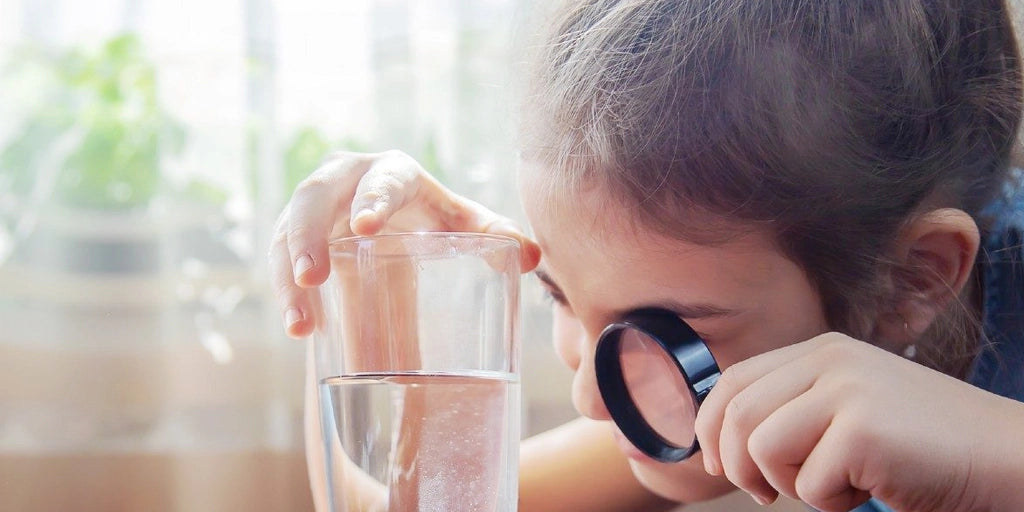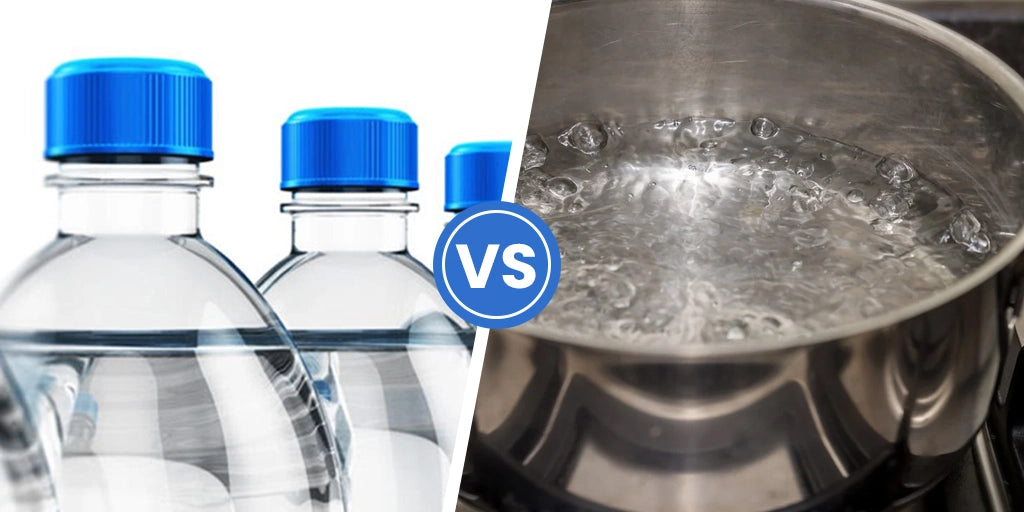Table of Contents:
What is purified water?
Purified water vs distilled water: is it the same?
Should you choose purified water over regular water?
The common composition of tap water
Purified vs distilled vs tap water: the key differences
FAQs
Conclusion
Do you think all water is created equal? Think again. The distinctions between purified, distilled, and tap water might surprise you. Understanding these differences could impact your health in ways you never imagined. Stay tuned to unravel the secrets behind these seemingly ordinary water choices.
What is purified water?

Purified water is essentially water that has undergone a process to remove impurities and contaminants. Various methods are employed through water filtration to ensure the water is free from harmful substances. This process not only enhances the taste but also provides numerous health benefits. Purified water is known for its ability to hydrate the body effectively, support digestion, and boost overall well-being.
Apart from the health benefits, the environmental impact of choosing purified water is significant. You can reduce plastic waste and lower your carbon footprint by opting for purified water instead of bottled water. Many purification systems are also designed to be energy-efficient, minimizing environmental impact.
Purified water vs distilled water: is it the same?

Purified water goes through a filtration process to remove impurities, while distilled water undergoes a process of boiling and condensation to eliminate contaminants.
Purification Process:
- Purified water is typically filtered using reverse osmosis or distillation methods, removing impurities and contaminants.
- Distilled water is created by boiling water, collecting the steam, and condensing it back into a liquid form, ensuring the removal of most impurities.
Mineral Content:
- Purified water may retain some minerals unless additional steps are taken to remove them.
- Distilled water is almost entirely devoid of minerals due to the distillation process.
Health Benefits:
- Purified water can benefit those looking to avoid contaminants commonly found in tap water.
- Distilled water is often recommended when mineral-free water is necessary, such as in medical equipment or specific industrial processes.
Should you choose purified water over regular water?

Choosing purified water over regular water ensures higher purity and cleanliness for your hydration needs. When considering whether to opt for purified water, there are several factors to take into account:
- Health benefits: Purified water undergoes a stringent purification process, removing contaminants and impurities that may be present in regular water, promoting better health outcomes.
- Environmental impact: While purified water may come in plastic bottles, the environmental impact can be mitigated by choosing eco-friendly packaging options or using a countertop water filter system.
- Taste preference: Purified water often tastes fresher and cleaner due to removing unwanted elements, enhancing your overall drinking experience.
- Cost comparison and availability concerns: While purified water may come at a slightly higher cost, the benefits in terms of health and taste may outweigh the additional expense. Additionally, purified water is widely available in various forms, from bottled options to home filtration systems, ensuring accessibility for most consumers.
The common composition of tap water

Tap water typically consists of a mixture of minerals, chemicals, and microorganisms that vary depending on the water source and treatment processes. Water treatment processes play a crucial role in ensuring tap water meets safety standards. However, despite these treatments, tap water may still contain some chemical contaminants that can pose health risks if consumed in large quantities. It's essential to be aware of the common composition of tap water to understand its potential impact on health and the environment.

Purified vs distilled vs tap water: the key differences
When comparing these types of water, consider the following:
- Water filtration, purification methods: Purified water undergoes filtration processes like reverse osmosis to remove impurities, while distilled water goes through a distillation process to separate contaminants.
- Mineral content, taste comparison: Purified and distilled water typically have lower mineral content compared to tap water, affecting the taste and potential health benefits.
- Environmental impact, sustainability considerations: Tap water, although treated with chemicals, is often more environmentally friendly and sustainable than the production processes involved in obtaining purified or distilled water.
Understanding these distinctions can help you choose the most suitable type of water for your needs, whether it's for drinking, cooking, or other purposes.
FAQs
Can purified water be harmful to drink if it lacks essential minerals?
Drinking purified water without essential minerals may not harm you in the short term. However, over time, it might lead to mineral deficiencies. Consider balancing your intake with mineral-rich foods for optimal health.
Does tap water vary significantly in taste and odor depending on the location?
Due to minerals or additives, tap water taste and odor can differ based on location. Factors such as chlorine levels or soil composition can impact the flavor. So, it's essential to consider a filtration system for improved quality.
Conclusion
In conclusion, knowing the differences between purified, distilled, and tap water can help you make informed decisions about your drinking water. Purified water undergoes additional filtration processes, while distilled water is boiled and condensed to remove impurities. Tap water may contain minerals and additives depending on your location. Choosing the right type of water for your needs and preferences is essential for staying hydrated and healthy.
















